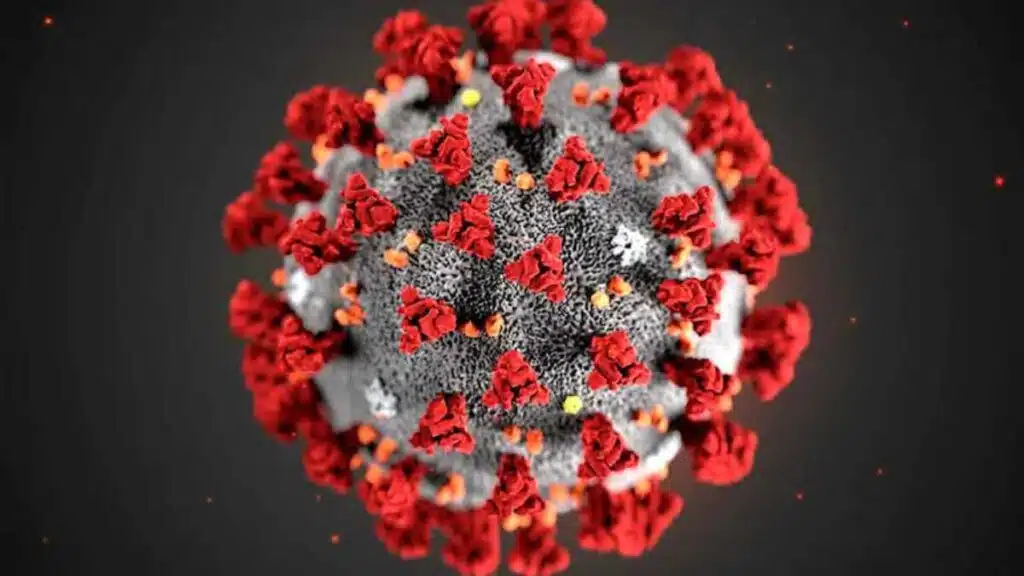In recent weeks, several countries across Asia have experienced a noticeable increase in Covid-19 cases. Cities like Hong Kong and Singapore—both known for their population density and global connectivity—have reported a significant number of fresh infections. The renewed spread of the virus is drawing attention from public health experts, who are encouraging citizens to stay alert while emphasizing that the current variants do not appear more dangerous than previous strains.
Covid-19 Activity Increases in Asia’s Major Cities
According to the Hong Kong Center for Health Protection, Covid-19 remains active within the community. Public health authorities are monitoring the situation closely and urging people to take preventive steps. Similarly, in Singapore, officials have noticed a rise in daily cases and are addressing concerns while reassuring citizens.
In a statement, Singapore’s Ministry of Health mentioned:
“While the increase in cases could be due to factors including waning population immunity, there is no indication that the circulating variants are more transmissible — or cause more severe cases — than during the pandemic.”
This statement helps to clarify that while case numbers are rising, the virus isn’t necessarily more dangerous than before. Instead, the increased transmission may be related to the decreasing effectiveness of prior immunity, either from vaccines or previous infections.
New Covid-19 Cases Reported in India
India, too, has seen a mild uptick in Covid-19 cases, with some states showing a noticeable spike. Maharashtra—which includes Mumbai—reported a sharp increase in active cases from 12 to 56 in just one week. Nationally, India currently has 257 active Covid-19 cases, with the majority of them being reported in Kerala, Maharashtra, and Tamil Nadu.
Health officials told PTI (Press Trust of India):
“India stands at 257 cases and is monitoring the situation with increased vigilance. As per the preliminary information available, the cases are mostly mild, not associated with unusual severity or mortality.”
This shows that while cases are indeed rising, there is no cause for alarm yet. Authorities are staying alert, and the healthcare system is prepared to manage the situation if it worsens.
Are New Covid-19 Variants to Blame?
Yes, the recent surge in cases across several Asian countries is believed to be caused by new variants of the Covid-19 virus. According to experts, the primary driver appears to be the JN.1 variant, which belongs to the Omicron family.
What Is the JN.1 Variant?
The JN.1 variant is a descendant of the BA.2.86 variant, itself a sub-variant of Omicron. The World Health Organization (WHO) has classified JN.1 as a “variant of interest”, not a “variant of concern,” meaning it is being closely observed but is not currently seen as a major public health threat.
According to WHO, the global risk posed by the JN.1 variant is considered low at this stage. However, health experts across Asia are watching its spread carefully due to its presence in rising case numbers.
Newer Descendants: LF.7 and NB.1.8
Singaporean health authorities have identified newer descendants of JN.1, including the LF.7 and NB.1.8 variants. These sub-lineages are now circulating in the population, but current data suggests they do not cause more severe illness than earlier variants.
Common Symptoms of the JN.1 Variant and Its Descendants
Most individuals infected with the JN.1 variant are experiencing mild upper respiratory symptoms, consistent with what has been seen in previous Omicron infections. Here are some of the most commonly reported symptoms:
- Fever
- Runny or blocked nose
- Sore throat
- Headache
- Extreme fatigue
- Muscle weakness or aches
- Exhaustion
- Minor gastrointestinal issues, such as discomfort or indigestion
- Loss of appetite
- Persistent nausea
Duration of Symptoms
In most cases, these symptoms are mild and improve within 4 to 5 days. However, it is important to monitor your condition and consult a doctor if symptoms worsen or last longer than expected—especially for elderly individuals or those with underlying health conditions.
Why Are Covid-19 Cases Rising Again?
Health experts point to a few reasons for the recent rise in cases:
- Waning Immunity: People who were vaccinated or previously infected now have lower protection.
- New Variants: Even if not more dangerous, new variants can still spread more easily.
- Relaxation of Precautions: As life returns to normal, fewer people are wearing masks or sanitizing regularly.
- Increased Travel: Tourism and international travel have returned to pre-pandemic levels in many countries.
Despite these reasons, authorities continue to stress that the current situation is under control and that hospitalizations remain low.
Health Authorities Recommend Booster Vaccinations
In response to the rise in cases, health departments in Hong Kong, Singapore, China, and Thailand are urging citizens to take booster vaccinations, especially if it has been more than 6–12 months since their last dose. Boosters can significantly improve immunity against Omicron sub-variants, including JN.1 and its descendants.
While India has not yet reintroduced a national booster drive, discussions are ongoing. Citizens are advised to consult local healthcare providers about getting updated vaccine doses, especially vulnerable groups such as:
- People above 60 years of age
- Individuals with chronic illnesses
- Frontline healthcare workers
Preventive Measures: How You Can Stay Safe
With Covid-19 cases once again on the rise, it’s crucial for individuals to take basic preventive steps to protect themselves and others. Here are some simple but effective precautions you can take:
1. Wash Hands Regularly
Use soap and water or an alcohol-based hand sanitizer to keep your hands clean, especially after touching public surfaces.
2. Wear a Mask in Crowded Places
Wearing a mask is still one of the best ways to prevent infection, especially in places like public transport, hospitals, or shopping malls.
3. Maintain Physical Distancing
Try to keep at least 1 meter (3 feet) of distance from others in crowded areas or during social gatherings.
4. Avoid Contact With Sick Individuals
If someone near you is showing symptoms such as coughing or sneezing, maintain distance and wear a mask.
5. Ensure Proper Ventilation
Keep windows open when indoors and use exhaust fans to improve airflow.
6. Monitor Your Health Daily
Watch for symptoms such as fever, fatigue, or sore throat, and seek medical attention if necessary.
Should You Be Worried?
At this stage, there is no need for panic, but caution is essential. The current variants in circulation are not causing severe disease in most cases, and hospitalizations remain low. However, the virus is still evolving, and new variants may emerge in the future.
Health agencies around the world, including the World Health Organization (WHO), are working continuously to monitor and respond to changes in the virus. Individuals can play their part by staying informed and following health guidelines.
Final Thoughts: Stay Alert, Not Alarmed
The current rise in Covid-19 cases across Asia is a reminder that the virus has not completely disappeared. With new variants such as JN.1, LF.7, and NB.1.8 emerging, staying vigilant and proactive is more important than ever.
Governments and health agencies are responding with increased monitoring and vaccine recommendations. As individuals, we must do our part by following basic precautions, considering booster shots, and staying updated with credible health news.
Disclaimer: The content provided here is for informational purposes only and is not a substitute for professional medical advice. Always consult with a qualified healthcare provider if you have health concerns or are experiencing symptoms. NDTV does not assume responsibility for decisions made based on this information.

